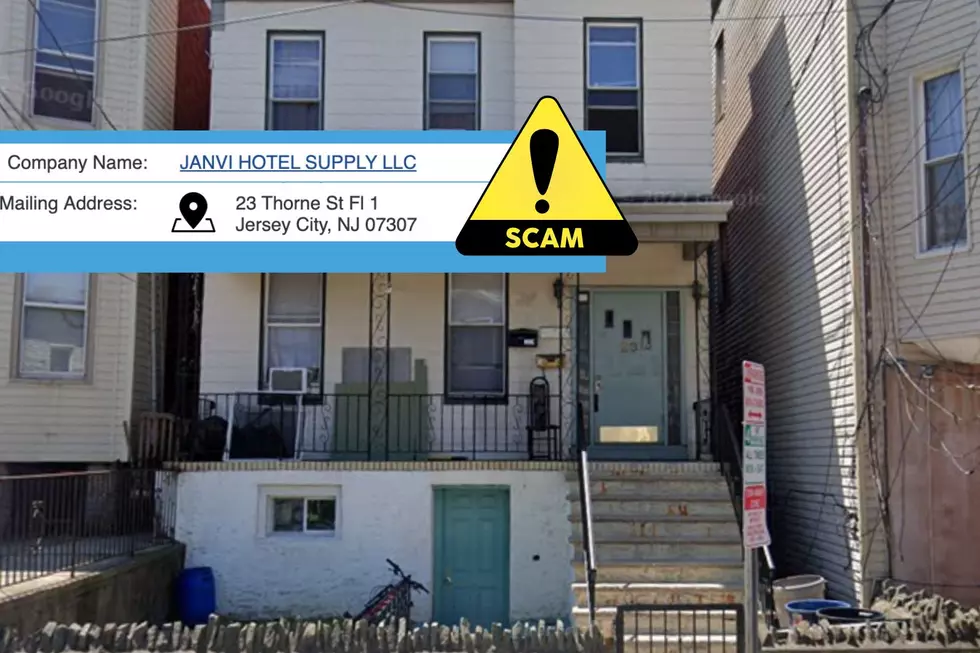![Violent Defendants All Get Bail In New Jersey [AUDIO]](http://townsquare.media/site/385/files/2012/05/police.jpg?w=980&q=75)
Violent Defendants All Get Bail In New Jersey [AUDIO]
Thugs with histories of violence could be living next door to you and your kids.
Right now, under the New Jersey State Constitution, everyone is entitled to bail before conviction, except in cases where the defendant is charged with capital crimes that are punishable by death. Because New Jersey has eliminated the death penalty, everybody is actually entitled to bail. Lawmakers have still not voted on legislation in Trenton that mirrors federal law seeks to give judges some discretion.
The measure was posted, but not voted on in late June before the State Budget was put to bed. This has Governor Chris Christie mystified.
He says, "I couldn't get a full explanation from anybody about why it didn't move that day."
Christie, who first proposed the bail reform measure says, "I think we it. I think we need it urgently. We have violent people on the streets who are being bailed every day because judges have no choice. They leave. They intimidate witnesses. They commit further crimes and there's no reason for us to have hesitated on that."
Some are wondering why this change has to be done constitutionally. Christie says those people need to read the constitution because right now it says bail 'shall' be granted, not 'may' be granted.
He explains, "This would not deny people bail. It would give judges discretion which they currently do not have."
Donna Simon and Dave Rible sponsor the legislation in the Assembly. According to Simon, "It is imperative that public safety be a high priority when a judge determines whether to grant bail. Federal law takes into account the dangers and risks posed by someone charged with a serious crime. New Jersey courts must have the same ability to protect the public."
"Empowering judges to deny bail to a defendant with a violent history affirms that New Jersey is serious about protecting its citizens and communities," says Rible, the Assembly Republican Conference Leader and retired police officer. "Like federal law, there must be a balance between a defendant's rights and keeping our neighborhoods safe. Judges must have the appropriate standards to determine this issue. Protecting victims and witnesses from intimidation by the offender is vitally important. No one wants to hear stories of a crime committed by someone with a dangerous past while they were free on bail awaiting trial."
"Offenders who commit heinous crimes and demonstrate that they are a continued threat to the public should not be released back into our communities to commit additional violent acts against our residents," says State Senator Donald Norcross, chair of the Senate Law and Public Safety Committee. "Providing judges with the ability to use discretion in deciding whether to allow bail will ensure there is an effective system in place to protect residents from those who are considered the 'worst of the worst' criminals in society."
GOP State Senator Kevin O'Toole says, "Judges should be able to determine whether defendants are held without bail to protect the public and ensure defendants make timely appearances in court. This amendment applies to defendants who pose a great public safety risk or those with track records of disrupting the integrity of our criminal justice process."
The amendment authorizes courts under certain conditions to deny pretrial release of certain offenders. In order to deny pretrial release, the court would be required to find that no amount of bail, pretrial release conditions, or combination of bail and conditions would assure the defendant's appearance for trial. The court also could deny pretrial release to protect the safety of any person or the community, or to prevent the defendant from obstructing or attempting to obstruct the criminal justice process. The amendment also authorizes the Legislature to enact laws establishing procedures, terms, and conditions applicable to releasing defendants prior to trial and denial of pretrial release.
Voters would be asked to approve the constitutional amendment in a November ballot question.
A 2007 report by the US Department of Justice showed that 33 percent of individuals charged with a felony in the state courts studied committed one or more types of misconduct within a year of being released prior to the disposition of their case. Of those individuals, a bench warrant for failure to appear in court was issued for 23 percent. An estimated 17 percent were arrested for a new offense, 11 percent of those for a felony.
More From New Jersey 101.5 FM









